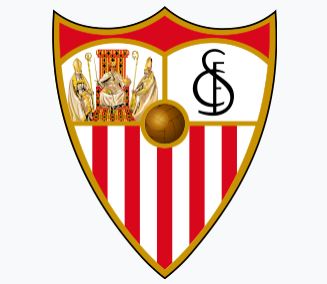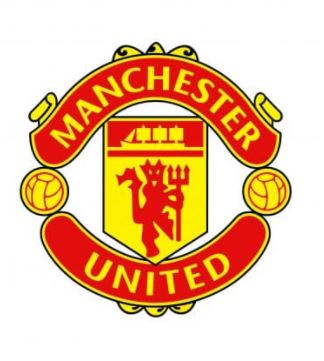THE UEFA EUROPE LEAGUE
How did the UEFA Europa League competition come about?
The UEFA Europa League is the second most important European football tournament. It is organized annually by the Union of European Football Associations (UEFA). The Europa League bears that name since the 2009-2010 season and is in fact the amalgamation of the European Cup II founded in 1971-1972 (which itself was included in the UEFA Cup founded in 1960) and the minor Intertoto founded in 1961. cup.
The best teams in this league
Unlike the Champions League, the Europa League offers much more perspective to the non-champions of the past season. Runner-ups and other teams that narrowly or narrowly missed the title or, for whatever reason, only became strong at the end of the season, get an extra chance for revenge here. Teams from less strong football countries also get the chance to compete against top and sub top players.
Record holder
Since 1971-1972 Sevilla FC is the record holder of the European Cup II/Europa League with 6 wins. It is followed by four teams that have won the cup 3 times each:
Inter Milan, Juventus FC, Liverpool FC and Atlético Madrid. From 1971-1972 to 2020-2021, Spanish teams have won the most with 11 wins. They beat Italy and England (both 11x), Germany (6x) and the Netherlands (4x) with this.
Belgium has so far (with Anderlecht in 1982) only brought home one cup. In 2020-2021, Manchester United, AS Roma, Arsenal FC and Villareal CF reached the semi-finals.
The last 10 years
If we take a closer look at the Europa League results from 2009-2010, Sevilla remains the leader with 4 wins, followed by Atlético Madrid (3), Chelsea (2), Manchester United (1) and FC Porto (1). Even since the competition has been called Europa League, the Spanish and English teams have continued to dominate. In the runner-ups, however, we see a greater variety of nationalities: England and Portugal each placed 3x second, while Spain, the Netherlands, Italy and Ukraine form a quartet with 1 second place each.

Seville FC
The Spanish Sevilla FC never again became national champion except for that one time in 1946. It has won the Spanish Cup 5 times and the Spanish Super Cup once. It has won the European Cup II/Europa League six times since 2006, including in 2020. In 2006 it won the European Super Cup.

Atletico Madrid
Atlético Madrid became 10 times national champion (most recently in 2014), 10 times won the Spanish Cup (most recent in 2012-2013) and 2 times the Spanish Supercopa (most recent in 2014). In Europe, the club was 3 times (losing) finalist in the European Cup I/Champions League. It did win the Europa League 3 times (most recently in 2018).

Chelsea
Chelsea have won the English league six times since its inception in 1888, five of which have been in the Premier League since 1992. It has also won the English FA Cup eight times. Her greatest achievement remains the 2 victories in the European Cup I/Champions League. The 2 victories in the European Cup II/Europa League are also worth mentioning.

Manchester United
Manchester United are the most successful team in English football history. With 20 titles, she is the record holder in the national competition. She has won 13 of these in the Premier League since 1992. Manchester has also been a 12-time FA Cup winner. It won the European Cup I/Champions League three times and the European Cup II/Europa League once.

FC Porto
Since the start of the Portuguese football league in 1922, FC Porto has been champion 29 times. Only SL Benfica did better. FC Porto has already won the European Cup I/Champions League twice (in 1987 and 2004) and twice the European Cup II/Europa League (in 2003 and 2011). It also won the Portuguese Cup 17 times and the Portuguese Super Cup 21 times.
What is the competition like?
The qualification phase starts with a preliminary round, in which sixteen teams from the countries with the lowest UEFA coefficients play against each other. The winners move on to the first qualifying round.
qualifying round
In a first, second and third qualifying round, there is a battle for a place in the play-off round. In the second and third qualifying rounds, two separate series are used: that of the champions and the non-champions. So there are regular teams that contested the Champions League to a certain extent.
play-off round
Also in the next play-off round, a series of champions (16 teams) and non-champions (26 teams) will be used. The 21 winners will advance to the group stage of the main tournament.
group stage
In the group stage of the main tournament there is room for 48 teams, which are divided into 12 groups of 4 teams each. Of these, 17 are directly seeded teams, 21 winners of the play-off round, 6 losers from the play-off round of the Champions League and 4 losers from the third qualifying round (non-champions) of the most recent Champions League.
knockout phase
The numbers 1 and 2 of each group, together with 8 dropouts from the Champions League, advance to the knockout phase, in which 32 teams play against each other.
draw for the sixteenth finals
During the draw for the sixteenth finals, the 12 group winners and the 4 strongest numbers 3 from the first round of the Champions League have a seeded status. The 12 numbers 2 and the 4 worst numbers 3 of the first round in the Champions League have an unseeded status. The seeded teams are drawn against the unseeded teams. Clubs that were in the same group and clubs from the same country cannot compete in this round.
From the eighth finals there is no more seeded and unseeded status and all clubs can compete against each other.
Extra information
– All-time top scorer in the European Cup II/Europa League is the Swede Henrik Larsson with 40 goals.
– The Czech Jan Sýkora scored the fastest goal ever in this competition in 2016 after 10.69 seconds.
– Based on two UEFA coefficients , UEFA ranks countries and clubs by strength. The competition coefficient refers to the national competition. The position in the ranking determines how many clubs each country can send to the Champions League, the Europa League and the Conference League.
Countries with the best competition coefficient
The top five in this ranking in 2020-2021 are Spain, England, Italy, Germany and France. The Netherlands and Belgium are respectively 8th and 9th. Clubs are ranked by strength based on the club coefficient. The five best in this standings in 2020-2021 are Bayern Munich, Barcelona, Juventus, Real Madrid and Atlético Madrid. The first Dutch club is Ajax in 19th place, the first Belgian club is Club Brugge in 43rd place.
– After the 1985 Heysel drama (with 39 deaths) during the European Cup I final between Liverpool and Juventus, the English clubs were banned from European competitions for five years.
Place2bet wishes you good luck!
Gamble in moderation. Enjoy the game.







